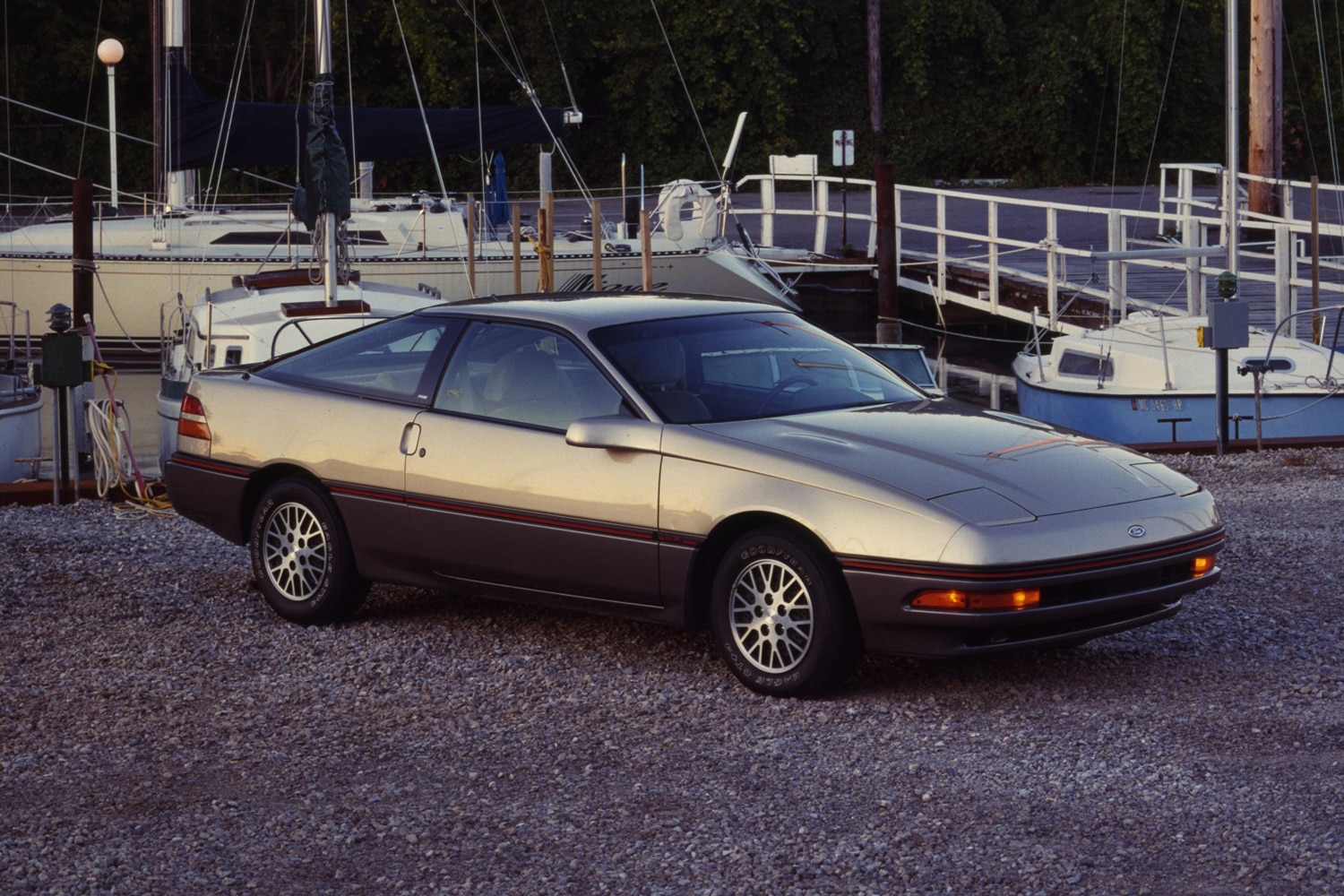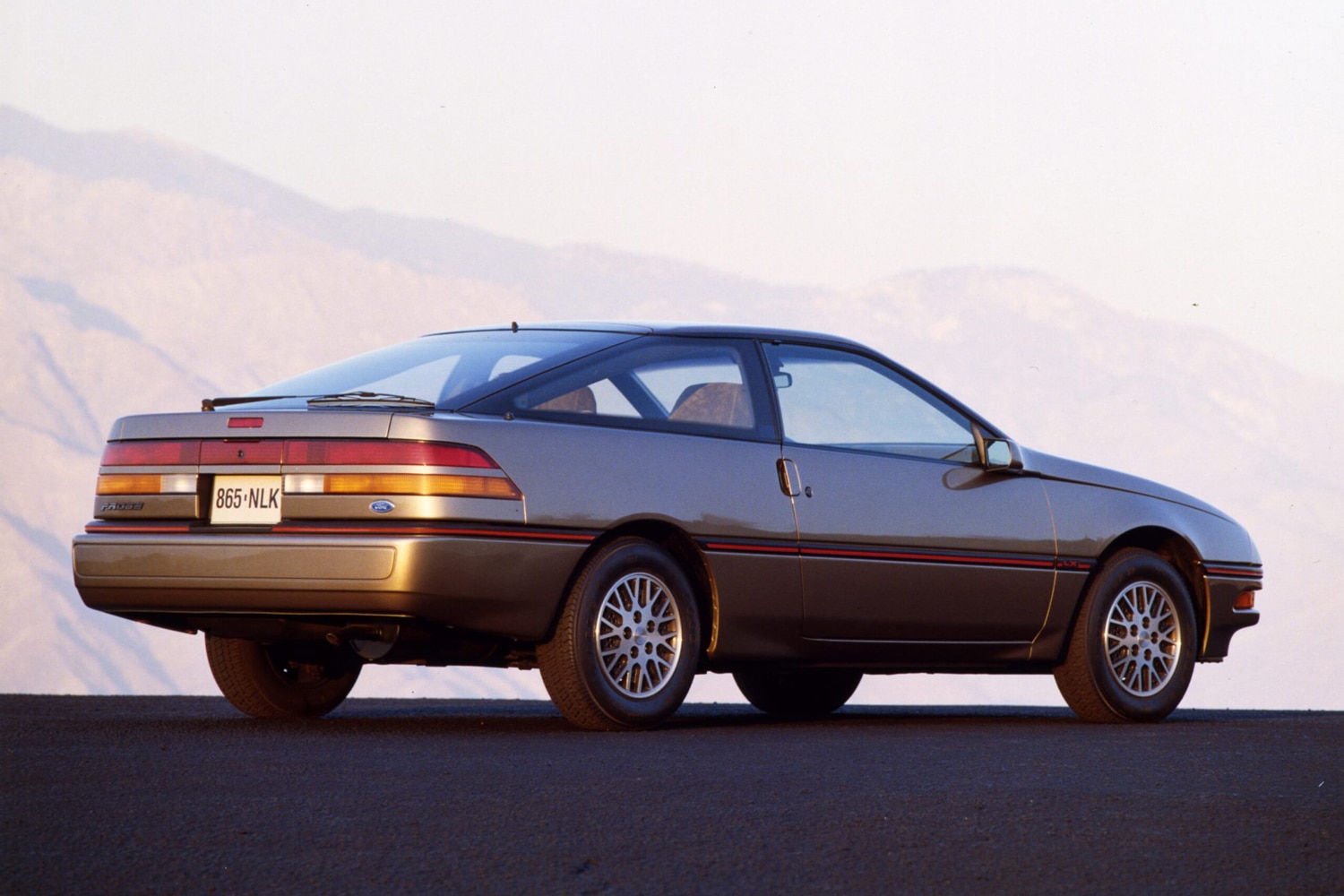Remembering the Ford Probe's Role in the Infamous McDonald's Hot Coffee Lawsuit
Stella Liebeck was in a car without cup holders when she spilled hot coffee and sustained third-degree burns.
 Ford Motor Company
Ford Motor Company
Thirty years ago this week, an incident at a McDonald's sparked a firestorm about the excesses of the American legal system and the dangers of making a pit stop for hot coffee. The case of Liebeck vs. McDonald's is one of the best examples of how media coverage can snowball out of control and create a lasting narrative that doesn’t reflect reality.
But the whole episode may never have happened if the Ford Probe had been equipped with cup holders.
The Incident
In 1992, Stella Liebeck was a passenger in a Ford Probe when she and her grandson stopped for coffee at a Golden Arches drive-thru in New Mexico. The Probe did not have any cup holders. With the car parked and without a place to set her coffee, Liebeck balanced the cup between her legs and attempted to remove the lid to add cream and sugar. Disaster struck when she jostled the cup, spilling extremely hot liquid all over her lower body.
The Case
After receiving care for the third-degree burns that covered 16 percent of her body, the 79-year-old asked McDonald's to cover her medical expenses and the lost income of her daughter, who had to take time off work to help her mother once she could no longer afford to stay at the hospital. Liebeck initially asked for $20,000; McDonald’s countered with $800. She then turned to a lawyer, who—after trying to settle with McDonald's twice with no response—took the company to court.
The case revealed that not only did McDonald’s keep its coffee at temperatures of 180 to 190 degrees Fahrenheit (enough to cause third-degree burns in as little as three to seven seconds), but it had faced 700 other complaints about similar injuries over the course of a decade. Despite being well aware of the dangers, the company did not sufficiently warn people about the temperature, nor did it change how it served its coffee, which it admitted was “unfit for human consumption” at those temps.
Her doctor testified in court, saying her scald marks were among the worst he’d ever seen. But in the end, only one detail stuck with the public: the payout. The jury awarded Liebeck $160,000 in compensation plus $2.7 million in punitive damages, roughly equivalent to two days’ worth of McDonald’s coffee sales. The judge later reduced the damages to $480,000 and eventually Liebeck and McDonald's, after both appealing the decision, arrived at an out-of-court settlement.
Talk-show hosts, comedians, and op-eds all but ignored the circumstances of the case and instead proclaimed the award to be out of proportion with Liebeck’s suffering, focusing on the fact that she had spilled the coffee on herself but not the extent of her injuries. They routinely ridiculed her case as an instance of out-of-control litigation and a so-called frivolous lawsuit. What was painted as a portrait of American greed was really an example of corporate negligence.
 Ford Motor Company
Ford Motor Company
Where Were All The Cupholders?
Thirty years later, it’s hard to imagine a car being made without cup holders, but that wasn’t uncommon for compact and sports cars manufactured in 1989, when the Ford Probe was first released. If cars were even equipped with cupholders, they were often small and would fold or retract into the dashboard when not in use. In 1983 the Dodge Caravan minivan introduced cup holders similar to what most vehicles have today. That being said, a vehicle designed for a busy family was a far cry from the Ford Probe, which was originally intended to replace the Ford Mustang. Looking back, the lack of a cup holder wouldn’t have been a surprise in a sports car.
The Ford Probe wasn’t targeted in the lawsuit, but it's easy to imagine that, had Liebeck been riding in a car with cup holders, her injuries, the court case, and the national outrage never would have happened. Cars have changed significantly in the 30 years since the accident, with many new vehicles offering more cup holders than seatbelts. As for the coffee?



